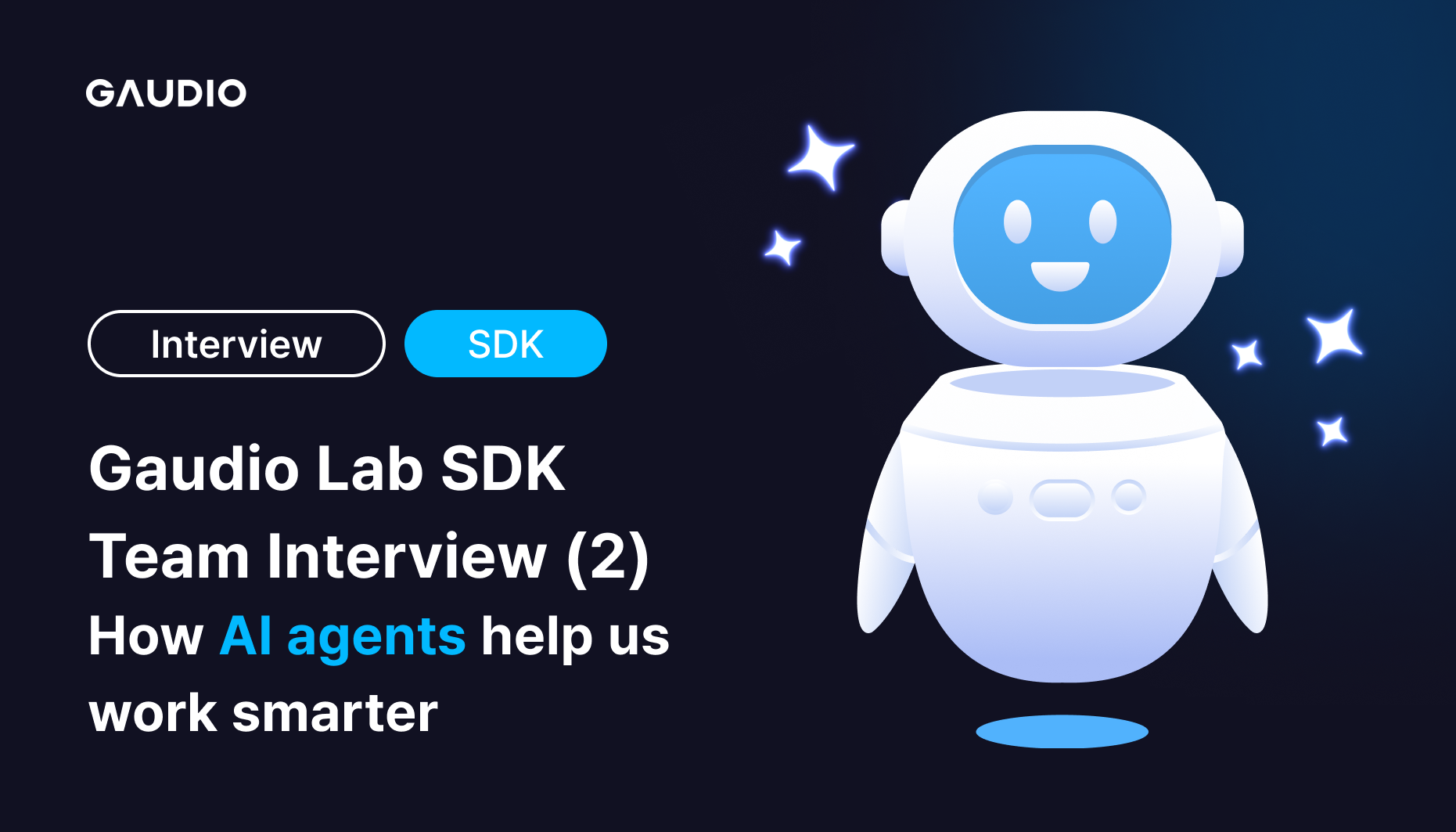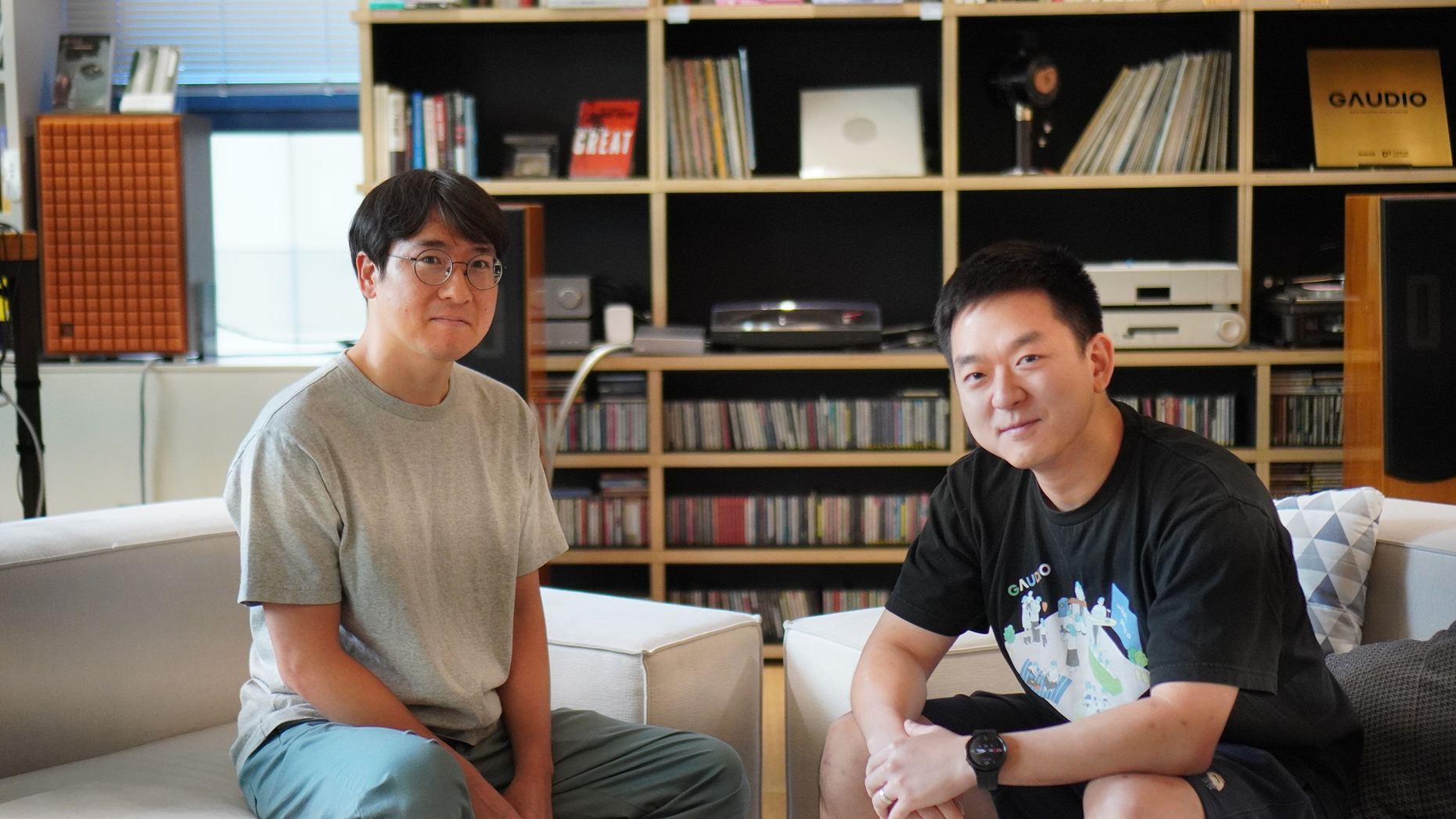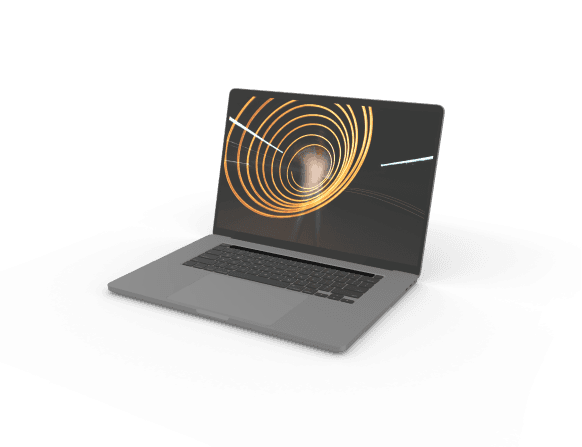How AI agents help Gaudio Lab's SDK team work smarter

Did you enjoy Part 1 of the GDK Development Team interview?
In this article, we’ll dive deeper into how they approach and solve problems with AI Agent.
If you haven’t read Part 1 of the GDK Development Team’s story yet, click here!
Even small changes deserve careful verification
Q: With such a range of work, what challenges have you faced—and how did you overcome them?
Leo: One recurring challenge is communicating when we port our SDK to third-party platforms. Especially with closed platforms or third-party chips, it’s often hard to obtain the necessary information. And when teams are physically far apart, inefficient communication loop can become a real issue. For example, confirming how a piece of hardware behaves can take days—or even up to a month.
To work around this, we assume the other side can’t see our setup and try to communicate as clearly and kindly as possible, providing thorough context. That’s why communication skills—being able to clarify complex situations—are just as important as technical skills.
Another challenge is that audio is difficult to evaluate quantitatively. Because sound quality is often judged subjectively, even minor code changes can affect the listener’s perception. That’s why we consult our in-house audio experts—yes, we have nine PhDs in acoustics!
One of our core philosophies is: “Even small changes deserve careful verification.”
William: One challenge I remember is from one of the Sound Quality projects. Each client had slightly different expectations for how the SDK should behave. As a result, even a single version could become fragmented, creating overhead in managing and automating deployments.
Ideally, we’d provide one well-built SDK to all clients, but realistically, customization is often unavoidable depending on the client’s priorities. We constantly walk a fine line between standardization and customization—and I think managing that balance is one of our key strengths.
Embracing AI Agents—Tools that truly boost productivity
Q: I heard your team started to use AI Agents in development. What kind of changes do you expect?
Leo: We’re still in the early stages—exploring which tools to use and how to integrate them into our process. We had been using some tools already, but what really kicked things off was a seminar by our frontend developer, Handy. After that, the team became aligned on experimenting more seriously. And once we started, the benefits became clear.
William: We’re still figuring things out, but our productivity has definitely improved. We try to delegate repetitive tasks to AI so we can focus on core logic. I’ve found that if I define the task clearly—like in a commit-sized chunk—the AI can produce really useful results. We then review and refactor the output. For repetitive or boilerplate code, AI completes tasks in seconds. We’re seeing clear potential for time savings and efficiency.
Leo: AI Agents significantly lower the initial barrier when starting a new, unfamiliar project. They’re also great at reducing human errors that are easy to overlook, and they serve as helpful collaborators during code reviews. I’m really optimistic about their potential.
Q: It sounds like your team is open to new tech!
William: Definitely. If a tool can improve efficiency, we’re willing to try it. Especially in areas with fewer external dependencies—like demos, test tools, or CLI utilities—we’re encouraged to experiment. Of course, SDK development requires more caution due to stability and compatibility concerns. But, if a tool proves to be effective, we are open to adopting it.

We welcome proactive, respectful teammates
Q: People say Gaudio Lab’s biggest asset is its people. What are your teammates like?
William: Most of us are introverts—except maybe Jayden (laughs). I’m the youngest on the team, and compared to my friends’ workplaces, ours has no pressure from seniority. It’s a very relaxed and comfortable environment. I’ve never had issues with team dynamics.
Leo: I agree. We all have different personalities, but when it comes to work, we express ourselves clearly and respectfully. We communicate smoothly, without unnecessary conflict. Our team lead, Seo, emphasizes ownership—encouraging each member to take initiative and lead their work. It’s created a culture where we naturally take responsibility, and if you want to try something, you’re encouraged to speak up and go for it.
Final message to future teammates of Gaudio Lab SDK
Leo: The most important quality is adaptability—the ability to embrace change and new environments. If you’re proactive and curious, you’ll do well here. From a teamwork perspective, we look for people who can collaborate respectfully and share ideas harmoniously. Since many of our projects are fast-paced, it’s a great fit if you enjoy working with quick, dynamic rhythms.
William: I’d recommend this team to anyone who wants diverse experience. We frequently take on new challenges, so, it’s great for people who are open to change. And if you’re interested in music or audio, this is the perfect place to turn your ideas—like “It’d be cool if an SDK did this”—into reality. If you enjoy your work like a hobby rather than just a job, this team will be a fantastic fit.
Curious about the products developed by the GDK team at Gaudio Lab?
🔊 LM1 – Loudness normalization solution
🌐 Gaudio Spatial Audio – Spatial audio solution
🔇 Just Voice – AI-powered noise reduction solution
In addition to these, the GDK team has also contributed to many other products such as: ELEQ (Loudness EQ), Smart EQ (Smart Equalizer), Binaural Speaker (3D Audio Renderer), and GFX (Audio Effects Library).
If you found the story of the GDK development team intriguing,



